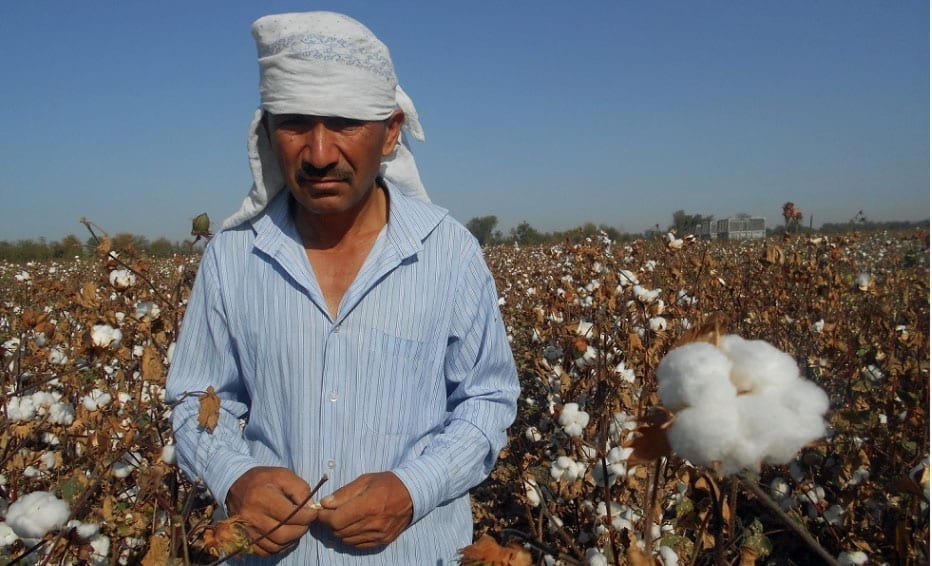In recent years, Uzbekistan has increased the number of public-sector workers required to pick cotton, because the country nearly ended child labor in 2014 after pressure from the international community, including the Solidarity Center. Recent reports, however, indicate that the practice of forcing children to pick cotton has not ended in all parts of the country, with children sent to the fields.
The return of child labor is one of many examples showing that Uzbekistan’s promised reforms have not yet fully become reality, and the Uzbek cotton fields remain full of abusive practices, even resulting in death. Najmiddin Sarimsoqov, 58, became the first victim to lose his life in the Uzbekistan cotton fields this harvest season when he died of a brain hemorrhage as he prepared to pick cotton in Jizzakh Region’s Zafarobod District on October 8.
Each year, the Uzbekistan government forces approximately 1 million people to work in the country’s cotton fields, picking a crop that makes up nearly a quarter of the nation’s GDP. The Walk Free Foundation, a group committed to ending forced labor, estimates that 4 percent of the country’s population is sent to the fields.
According to experts, the situation in Uzbekistan is unique, since the work is mandated by the government, a practice that dates back to the Soviet era. This makes monitoring and addressing the situation in Uzbekistan even more difficult, because monitoring must be conducted in tandem with Uzbekistan officials.
According to the Cotton Campaign, a coalition of organizations “dedicated to eradicating child and forced labor in cotton production,” of which the Solidarity Center is a member, the Uzbek government’s practice of forcing doctors, nurses, and teachers to work in the fields is extremely detrimental to the nation’s health and education services.
This year, however, the Uzbek government claims to have sent many of these public-sector employees out of the fields and back to their schools and jobs. The decision, made by President Shavkat Miriziyoyev, presumably comes after Jim Yong Kim, president of the World Bank, put pressure on the country to end the horrific practice. However, this situation has not been remedied.
Many of the public employees no longer forced to work are instead required to pay their replacements at costs that are unaffordable. Some teachers, who had been sent back to their classrooms from the fields, were forced to pay $40 to local officials, half of their monthly salary.
Praise for Uzbekistan Liberalized Labor Laws ‘Premature’
Steve Swerdlow, a Central Asia researcher at Human Rights Watch, called praise of the news regarding Uzbekistan’s supposedly liberalized labor laws “premature,” as long as activists face threats of violence and detention. “President Mirziyoyev’s government should send an unambiguous message to independent activists and cotton monitors that their work is valued and that they will be free to monitor this cotton harvest without retaliation or interference,” he adds.
The Solidarity Center and its partners have long been involved in the fight against forced labor in Uzbekistan. A report released earliert this year highlighted worker rights abuse in areas with World Bank investments. Even more recently, the Uzbek-German Forum published a report on forced labor in these areas, highlighting the World Bank’s failures to stop the practice in areas where it invests, such as Karakalpakstan, a region in the western area of the country. Together with its partners in the Cotton Campaign, the Solidarity Center has joined in calling on the World Bank to live up to its promises in Uzbekistan.
Despite government claims to the contrary, it is clear that Uzbekistan’s cotton fields are still rife with forced labor and child labor, and the Solidarity Center and its allies will continue the struggle for decent work in Central Asia and beyond.

